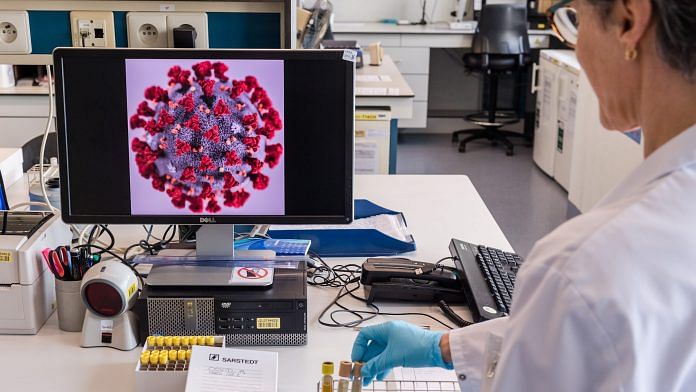New Delhi: Turning available scientific advice from multiple health authorities across the world on its head, researchers at the National Institute of Virology in Pune have concluded that the UK variant of the SARS-CoV2 is not more infectious than the strain that is dominant across the world. The study was done on Syrian hamsters and the results have been revealed in a pre-print paper.
“In conclusion, the transmission of SARS-CoV-2 variants could be established in Syrian hamsters by direct, aerosol and fomite routes as evident by the body weight loss, detection of viral gRNA/live virus in the samples and IgG antibodies in the contact hamsters. The study demonstrated comparable transmission efficiency of both UK and D614G variants of SARS-CoV-2 in Syrian hamsters,” the researchers concluded.
The D614G is currently the dominant variant of the virus the world over and has been so for almost a year now. The B.1.1.7 variant of the virus, commonly known as the UK strain, emerged sometime in September 2020. It was reported by the UK in December 2020 and is believed to be largely to blame for the surge in that country this year.
According to the World Health Organization: “A variant of SARS-CoV-2 with a D614G substitution in the gene encoding the spike protein emerged in late January or early February 2020. Over a period of several months, the D614G mutation replaced the initial SARS-CoV-2 strain identified in China and by June 2020 became the dominant form of the virus circulating globally.”
It adds: “Studies in human respiratory cells and in animal models demonstrated that compared to the initial virus strain, the strain with the D614G substitution has increased infectivity and transmission. The SARS-CoV-2 virus with the D614G substitution does not cause more severe illness or alter the effectiveness of existing laboratory diagnostics, therapeutics, vaccines, or public health preventive measures.”
Also read: Covid possibly came from bats to humans via another animal, WHO-China joint study says
Multiple medical guidance on UK variant being more infectious
While the NIV study — yet to be peer-reviewed — has come to the conclusion that both the B.1.1.7 and the D614G variants have a comparable transmission rate, this is contrary to what several health authorities across the world advise. There are also multiple published and peer-reviewed papers that make the point that the variant, while perhaps not more lethal, is a smarter infecting agent than the original.
Analysing the reasons for the surge in cases in the UK, a paper in The Lancet Respiratory Medicine, published in January this year, said: “…a new variant of SARS-CoV-2, which various modelling exercises have estimated to be up to 70% more transmissible than the previously circulating form of the virus. In September, 2020, this variant represented just one in four new diagnoses of COVID-19, whereas by mid-December, this had increased to almost two thirds of new cases in London.”
As the virus spread to other parts of the world (including the US), the US Centers for Disease Control also took note of it in its brief on SARS-CoV2 variants. “The United Kingdom (UK) identified a variant called B.1.1.7 with a large number of mutations in the fall of 2020.This variant spreads more easily and quickly than other variants. In January 2021, experts in the UK reported that this variant may be associated with an increased risk of death compared to other variant viruses, but more studies are needed to confirm this finding. It has since been detected in many countries around the world. This variant was first detected in the US at the end of December 2020,” CDC writes.
UK variant in India
The UK variant is among the several variants of concern that have been detected in India. A statement issued by the Press Information Bureau last week said: “771 variants of concerns (VOCs) have been detected in a total of 10787 positive samples shared by States/UTs. These include 736 samples positive for viruses of the UK (B.1.1.7) lineage. 34 samples were found positive for viruses of the South African (B.1.351) lineage. 1 sample was found positive for viruses of the Brazilian (P.1) lineage. The samples with these VOCs have been identified in 18 States of the country.”
The extent of spread of the variant, though, is different in different states. Punjab, which has been one of the focal points of the second wave of Covid in India has reported a very high incidence of UK variants. In one analysis of 401 samples from Punjab done last week at the National Centre for Disease Control, it was found that 81% had the UK variant. The finding made the Punjab government urge the Centre to open up vaccinations.
(Edited by Sanghamitra Mazumdar)
Also read: Over 32,000 cases, 1,100 deaths: Why Ludhiana is among India’s worst-hit Covid districts



